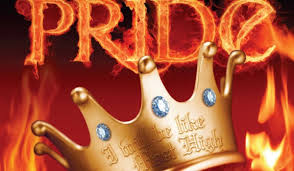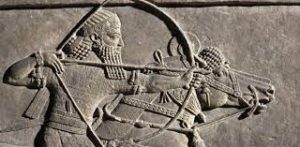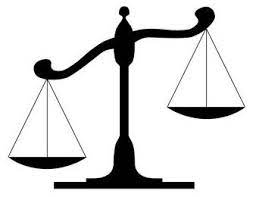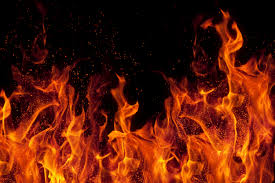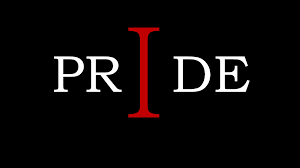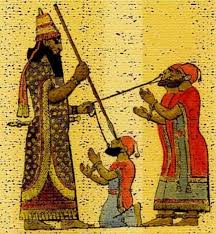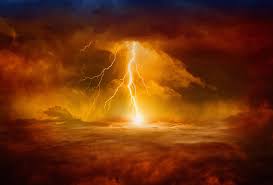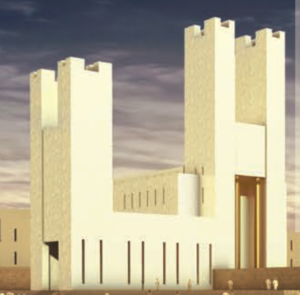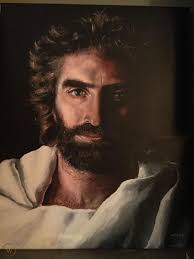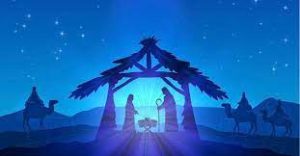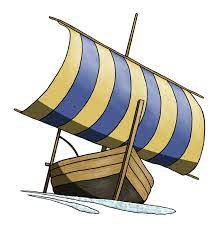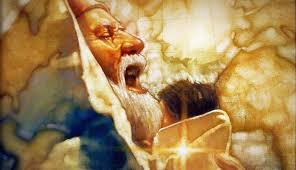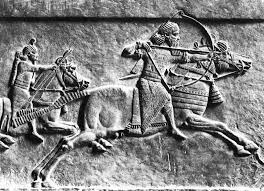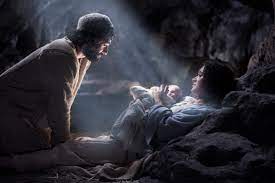Cy – Lebanon Will Fall Before the Mighty One 10: 28-34
Lebanon Will Fall Before the Mighty One
10: 28-34
Lebanon will fall before the Mighty One DIG: These verses recount the Assyrian army’s approach from a point about ten miles north of Yerushalayim. Substitute the names of cities and towns near you. Does this help you to understand how the people of Jerusalem must have felt? What will the King of kings and Lord of lords do to this army? How were they killed? How quickly did it happen? Now if this were your city, how would you feel after God’s intervention?
REFLECT: How has YHVH cut down an “Assyrian army” that has threatened to overwhelm you? What army seems to be breathing down your neck now? How can you deal with it? Who is there to help you? There are natural consequences to our sinful behavior. Is the Lord obligated to rescue us from our own wrongdoing? Can we be forgiven and still have to suffer natural consequences of our sin? If we are living holy lives and are not rescued from disaster, does that mean that God doesn’t notice or love us? Where does faith come into the picture (Hebrews 11:1)?
After describing the ultimate survival of the faithful remnant in 10:20-27, Isaiah returns to his own time and shows the arrival of the Assyrian army just prior to its destruction (37:36). It is not unusual for Isaiah to abruptly switch back and forth between the near historical future and the far eschatological future.
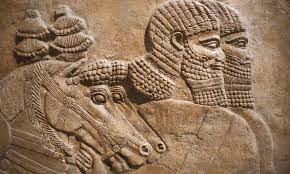
This is a graphic description of the march of the Assyrian army through various towns on the northern approaches to Jerusalem. The net effect is to picture an army, like a tsunami, which is all but unstoppable. They entered Aiath (another name for Ai); then they passed through Migron and after marching another seven and a half miles, they reviewed their weapons in preparation for the final assault 300 feet down the pass at Micmash. They decided not to stop but to push on over the pass and camp overnight at Geba a mile up the other side. At that point, they had entered Judah. Yerushalayim was but six miles off and the fortress towns of Ramah and Gibeah were outflanked and offered no resistance (10:28-29).
The news that the enemy is in Geba, with no significant barriers between them and Jerusalem, struck terror into the hearts of the neighboring villages. Ramah and Gibeah are outflanked. Gallim, Laishah, Anathoth, Madmenah and Gebim lie directly in the path of the juggernaut as it made its final march to the outskirts of Jerusalem the following day. Therefore, the LORD said to them: Cry out, literally scream at the top of your voice, O Daughter of Gallim! Listen, O Laishah! Poor Anathoth! Madmenah is in flight; the people of Gebim take cover. The description conjures up the picture of the arrival of the merciless Assyrian army, with the daughters of Zion their most prominent victims. And finally they will halt at Nob (10:30-32a).
Isaiah lists a number of cities and each one moves you closer to Jerusalem. Aiath is thirty miles away, Migron is fifteen miles away, Micmash is seven and one-half miles away, the pass is seven miles away, Gibeah is six miles away, Ramah is five miles away, Gibeah of Saul is three miles away, Gallim is two and three-quarters miles away, Laishah is two and one-half miles away, Anathoth is two miles away, Madmenah is one mile away, Gebim is one-half mile and finally to the gates of Yerushalayim at Nob, where the Hebrew University is built today.
This is where the Assyrians will shake their fists at the Holy City. This day they will shake their fist at the mount of the Daughter of Zion, at the hill of Jerusalem (10:32b). And while the Assyrians were capable of destroying all the Jewish cities mentioned in this paragraph, they destroyed many others because they destroyed forty-six of Judah’s fortified cities. They got to the very neck, the City of David herself. But Tziyon would stand, because once they get to her gates which they do at Nob (described as the city of the priests in First Samuel 22:11), the Assyrian forest would be destroyed.
When Isaiah starts this section with the words: See, ADONA-Tzva’ot, he introduces a sudden and dramatic change. The short, curt phrases describing the Assyrian army’s progress toward Jerusalem (10:28-32) are substituted by long, dignified sentences that tell of its swift end. In this way Isaiah strips away the picture of the Assyrian defeat only to reveal who was behind the scene, namely, the LORD of the universe who judges all humanity equally. Assyria was subject to God and her arrogance would not go unpunished (2:12-13). Sennacherib would soon learn that any calculation that leaves ADONAI out of the picture is doomed to fail (8:12-15, 47:8-9).
The words here refer to the narration of the actual event later in the book. Shortly after the fall of the northern kingdom of Isra’el, Sennacherib, king of Assyria descended on Judah. His assault came in 701 BC, during the reign of Ahaz’s son King Hezekiah (to see link click Gp – The Timeline of Sennacherib’s Invasion of Judah). At that time, Isaiah will record: Then the Angel of the Lord went out and put to death a hundred and eighty-five thousand men in the Assyrian camp. When the people got up the next morning – there were all the dead bodies! So Sennacherib king of Assyria broke camp and withdrew. He returned to Nineveh and stayed there (37:36-37). The Angel of the LORD is always the Second Person of the Trinity, Jesus Christ.
Therefore, Assyria would not succeed in its plan to take Jerusalem. Instead, it would be ADONAI-Tzva’ot (CJB) who would cut down the lofty trees (10:33a), or the Assyrian army (10:18). Some question how God could do such a thing. But when it comes to the LORD we must never confuse grace and mercy with weakness. It was a theophony, or a preincarnate vision of the Son of Man, that confronted Joshua before the fall of Jericho, saying: I am the commander of ADONAI’s army (Joshua 5:14 CJB), and the Lion of the Tribe of Judah (Rev 5:5) will fill the Valley of Jehoshaphat with blood as high as the horses’ bridles when He returns (Revelation 14:17-20). There is no “mean” God of the TaNaKh, and a “loving” God of the B’rit Chadashah. Love and judgment are seen in both Covenants.
The tall one, Sennacherib, king of Assyria, was brought low (10:33b). Like Pharaoh of Egypt, the king of Assyria thought he was a god. He was full of pride, and as Solomon tells us, pride goes before destruction, an arrogant spirit before a fall (Proverbs 16:18). Therefore, this egotistical king would be humbled and brought low before the King of kings and Lord of lords (First Timothy 6:15; Revelation 17:14 and 19:16).
ADONAI, God of heaven’s angelic armies (CJB) will cut down the forest thickets with an ax (10:34a). Isaiah had already reminded the people that they didn’t need to worry about the Assyrian invasion, because ADONAI was on their side (10:24-27). Even Lebanon, known for its thick forest of cedar trees, would fall before YHVH. Lebanon will fall before the Mighty One (10:34b). Certainly, Assyria could not think she could possibly escape. The Assyrian army’s destruction at the very moment when it believed itself to be knocking at the gates of victory is described here. The metaphor is that of a forest being cut down by the ax of the woodsman. The falling of a great tree is always spectacular. This one is even more so, following the picture of Assyrian pride (10:28-34).




